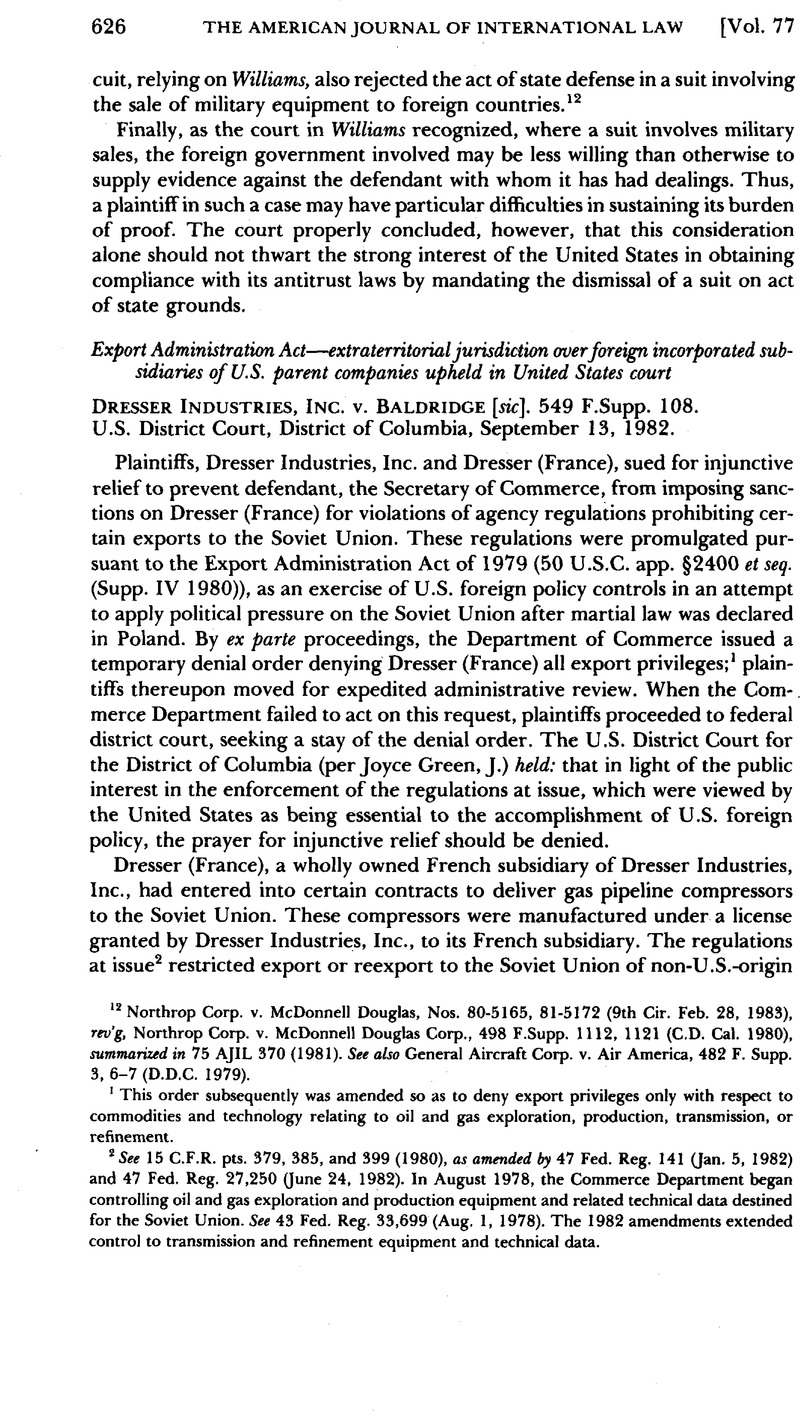No CrossRef data available.
Article contents
Dresser Industries, Inc. v. Baldridge [sic].
Published online by Cambridge University Press: 27 February 2017
Abstract

- Type
- Judicial Decisions
- Information
- Copyright
- Copyright © American Society of International Law 1983
References
1 This order subsequently was amended so as to deny export privileges only with respect to commodities and technology relating to oil and gas exploration, production, transmission, or refinement.
2 See 15 C.F.R. pts. 379, 385, and 399 (1980), as amended by 47 Fed. Reg. 141 (Jan. 5, 1982) and 47 Fed. Reg. 27,250 (June 24, 1982). In August 1978, the Commerce Department began controlling oil and gas exploration and production equipment and related technical data destined for the Soviet Union. See 43 Fed. Reg. 33,699 (Aug. 1, 1978). The 1982 amendments extended control to transmission and refinement equipment and technical data.
3 The court also refused to find that plaintiffs had been denied their due process rights. Commerce Department officials had intimated that a hearing pursuant to 15 C.F.R. §388.19(b)(2) would be held as soon as discovery was completed. This assurance apparently was sufficient to satisfy the minimum due process requirements. 549 F.Supp. 108, 110.
4 For example, Article XIV (5) of the Convention of Establishment Between the United States of America and France, 11 UST 2398, TIAS No. 4625 (entered into force Dec. 21, 1960), states that “companies constituted under the applicable laws and regulations of either High Contracting Party shall be deemed companies thereof.”
5 Consider, for example, U.S. experience in the field of antitrust regulation. In response to the antitrust actions brought against an alleged international uranium cartel, the British Government passed legislation that (1) empowered the British Secretary of State to prevent British compliance with U.S. demands for evidence, (2) limited enforcement of foreign antitrust judgments in Great Britain, and (3) enabled British persons to recover any amount paid in excess of actual damages pursuant to a foreign antitrust judgment. See Protection of Trading Interests Act 1980, c. 11, reprinted in 21 ILM 834 (1982).
6 In 1970, John Stevenson, State Department Legal Adviser, noted that the root of many problems caused by extraterritorial application of U.S. laws was the existence of two valid but conflicting claims of jurisdiction. Stevenson, , “Extraterritoriality” in Canada-United States Relations, 63 Dep’t State Bull. 425, 430 (1970)Google Scholar.




